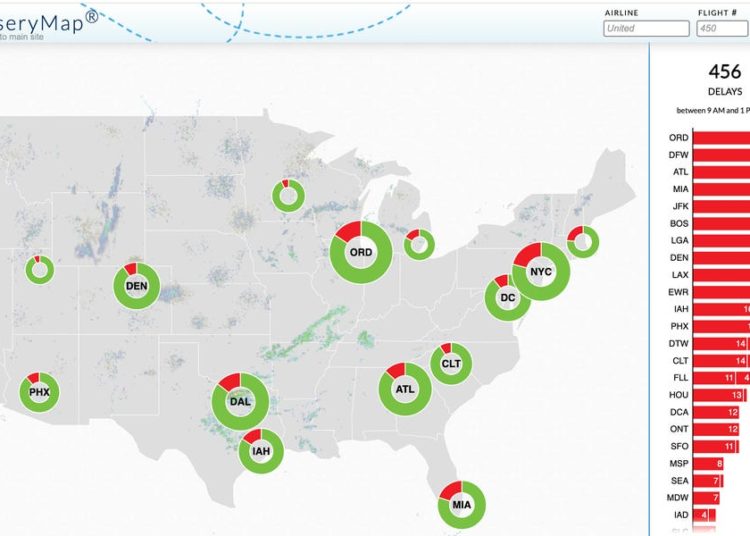Small and medium-sized enterprises (SMEs) in Germany do not complain. They work. They adapt to external circumstances and are successful with their products against all odds. Many of them worldwide. This is the secret of their success. But the current economic situation gives cause for concern.
We launched our DATEV SME Index a year ago. Our index provides up-to-date, fact-based and broad insights into German SMEs in a way that has not been available before: it is based on the advance VAT returns of more than one million SMEs and the payroll accounts of more than eight million employees. As an IT service provider for the tax consulting profession, this effectively lets us look directly into the engine room of German SMEs. But this detailed view is not very pleasant at the moment. The figures we publish each month based on data from tax advisors paint an almost worrying picture. The increase in the minimum wage that has already been decided is likely to exacerbate this situation for small and micro-enterprises.
Sales are falling, wages are rising
The German economy is in a difficult situation. Since September 2024, we have observed declining sales in SMEs. Concurrently, wages are increasing. Our latest statistics show that this trend is continuing — in all German federal states, industries and company sizes. There is currently no indication of a change in this trend. As previously described, SMEs rarely voice dissatisfaction. Instead, they seek pragmatic solutions. This challenging situation is no different. There are in fact a number of ways to resolve this issue.
Many SMEs are looking to the federal government with high expectations. They expect it to pursue business-friendly policies to strengthen the backbone of the German economy. Small and medium-sized companies represent 99 percent of it and employ around half of the workforce in Germany. Without relief and incentives, the existence of many SMEs is increasingly at risk. Above all, we need to reduce bureaucracy and implement a bureaucracy moratorium: meaning the standardization and reduction of documentation and retention requirements.
Above all, we need to reduce bureaucracy and implement a bureaucracy moratorium: meaning the standardization and reduction of documentation and retention requirements.
Financial incentives for greater productivity
The regulatory frenzy of recent decades in Germany and in the EU makes it difficult for companies to catch their breath. It not only costs SMEs time and money, but it also hinders innovation. But there are now initial indications that something is being done about this. The importance and necessity to modernize the administration has been recognized and will be supported financially. A separate ministry for digital transformation and state modernization is a positive first step.
The German government has also already decided on the so-called investment booster. However, this will only help to a limited extent
The German government has also already decided on the so-called investment booster. However, this will only help to a limited extent. The investment booster allows for declining balance depreciation of up to 30 percent, which enables companies to write off higher amounts, especially in the first few years. This is intended to accelerate investment and secure liquidity for businesses. However, this only helps if there is still enough substance or capital available for further financing. And in many cases, this is no longer the case for SMEs. In order to boost productivity, financial incentives must be provided as quickly as possible. It is our hope that there will be extensive investments in infrastructure and the digitalization of administration as well.
Artificial intelligence creates greater efficiency
Another encouraging sign: new technological advancements facilitate operations for business. Artificial intelligence (AI) is more than just a buzzword. As Germany’s second largest software company, we are dedicated to developing innovative products and solutions for tax firms, so that they can provide even more exceptional counsel to their clients — mostly small and medium-sized businesses. For me, it is evident that AI will positively transform work in tax consulting firms, creating significant opportunities. AI helps to simplify monotonous, repetitive tasks, allowing for more efficient workflow. It is a valuable tool for supporting individuals rather than replacing them. This is especially important in a time of pressing issues such as skilled worker shortages.
The use of AI thus also offers new opportunities for all companies that wish to prioritize their core business over bureaucracy. Digital and AI-supported processes with tax advisors will provide sustainable support in this. The acceptance and use of AI tools is steadily increasing in tax consulting firms. Among the most widely used industry-specific offerings, the DATEV appeal generator and specialist research tools are highly regarded. It is clear that we have only just begun to see the full extent of the situation. We are working every day on new solutions that make it easier for tax consulting firms to better advise their client companies to improve their successes. We also use our detailed knowledge that we generate from our DATEV SME Index.
The smart use of AI can also enhance the success of German SMEs and strengthen their ability to compete globally — despite existing regulatory challenges, bureaucratic hurdles and complicated tax systems.
Ultimately, it depends on how we deal with the challenges in our daily work. How we successfully shape the path to the digital future with the possibilities offered by AI. We have learned from major American software providers over the past 20 years that those who best understand the data business enjoy great economic success. Now comes the second chance. The smart use of AI can also enhance the success of German SMEs and strengthen their ability to compete globally — despite existing regulatory challenges, bureaucratic hurdles and complicated tax systems. So, enough whining. Let’s proceed!
Robert Mayr, tax advisor, auditor and doctor of business administration, is CEO of DATEV eG since 2016. From 2014 to 2016, he was on the board of the Nuremberg-based data processing cooperative, responsible for finance and purchasing, and had already been responsible for internal data processing and production since 2011. After studying business administration at Ludwig Maximilian University in Munich, he began his professional career as a consultant at Treuhandanstalt Berlin. Mayr worked for Deloitte from 1994 to 2001, after which he spent nine years as managing partner of Solidaris Revisions-GmbH in Munich. Since 2012, Mayr has been vice president of the Nuremberg Chamber of Tax Consultants.
DATEV eG is a data processing cooperative with more than 850,000 customers. Founded in 1966, it now employs a staff of about 9,000, working at its headquarters in Nuremberg and 22 branch offices throughout Germany. Its legal structure as a cooperative guarantees continuity, meaning no investor can buy DATEV. For more information on the DATEV Small and Medium-Sized Enterprises Index, please visit mittelstandsindex.datev.de (in German).
The post Rebuilding confidence: What comes after the SME crisis appeared first on Politico.




